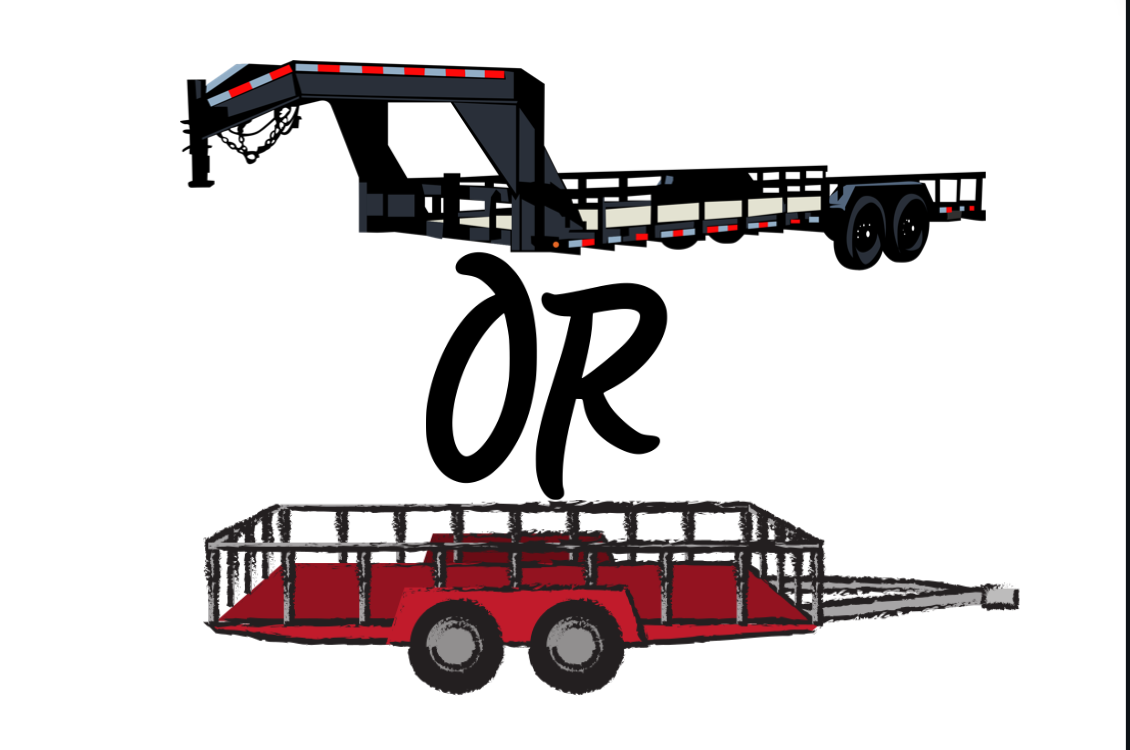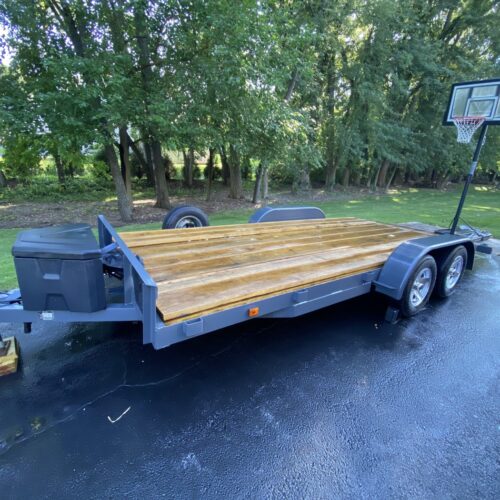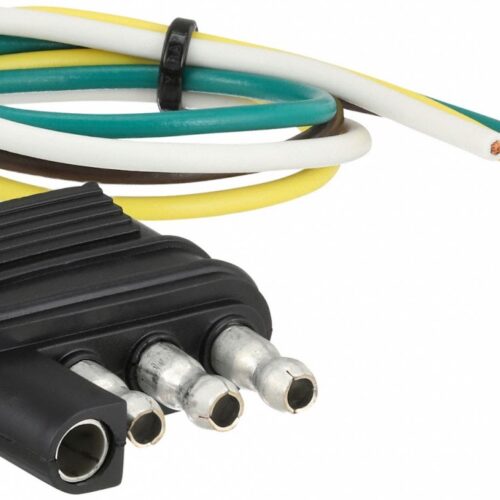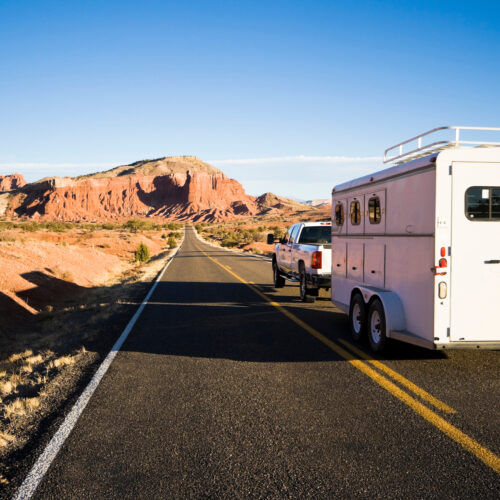In the world of towing trailers, one of the most fundamental decisions you’ll make is whether to go with a gooseneck or a bumper pull trailer. Each has its own set of advantages and disadvantages, and the choice largely depends on your specific needs, preferences, and the type of towing you’ll be doing. Let’s delve into the details of both to help you make an informed decision.
Gooseneck Trailers
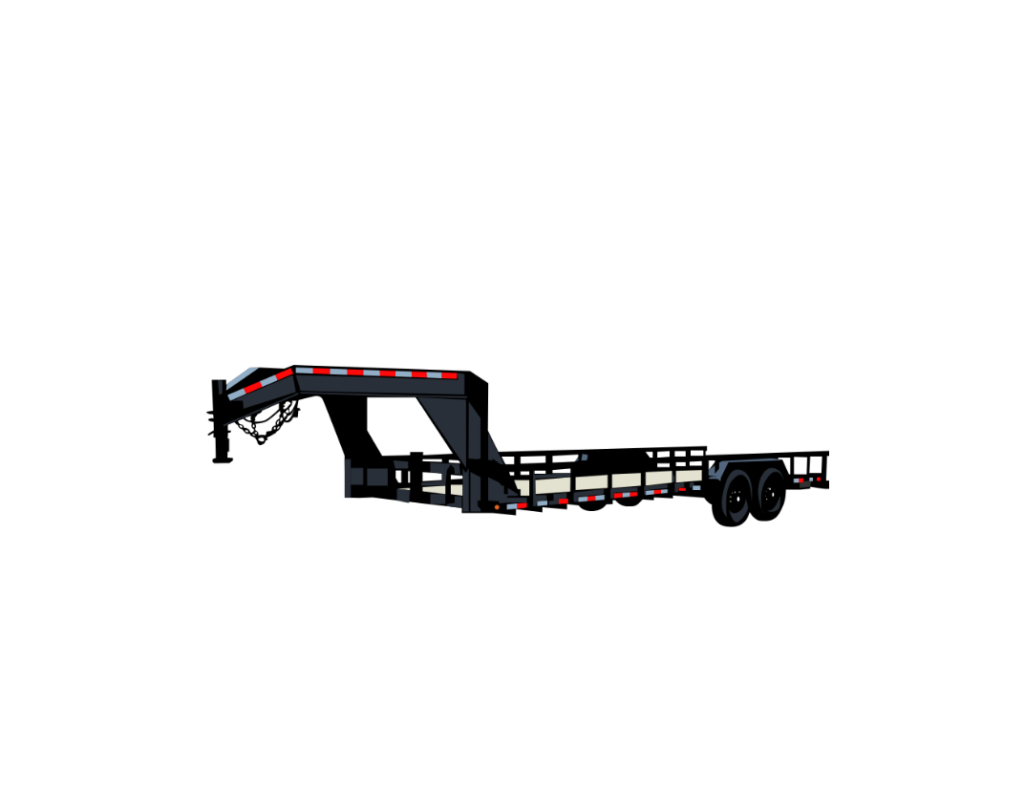
Bumper Pull Trailers
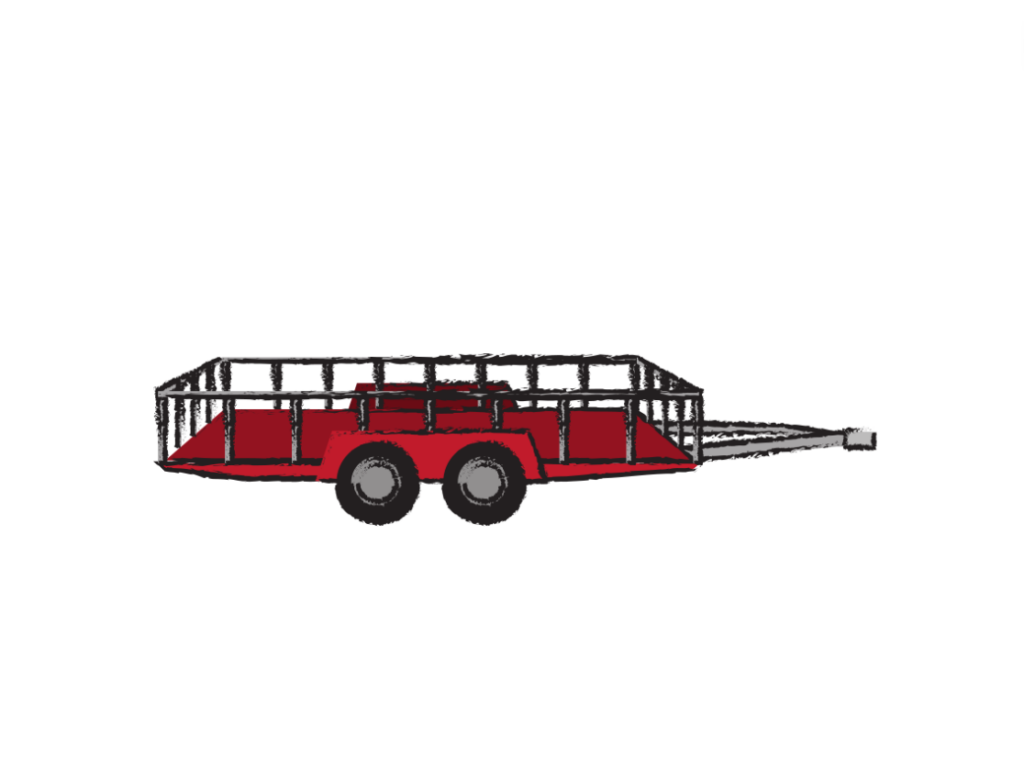
Pros of a Gooseneck Trailer:
- Stability and Maneuverability: Gooseneck trailers are known for their stability and maneuverability, especially when towing heavy loads. The hitch point located in the bed of the truck allows for tighter turning radiuses and greater control. The design of a gooseneck trailer makes it less prone to sway, which can be particularly advantageous on long hauls or in windy conditions.
- Increased Towing Capacity: Generally, gooseneck trailers have a higher towing capacity compared to bumper pull trailers. This makes them ideal for hauling heavier loads such as livestock, large equipment, or multiple vehicles.
- Better Weight Distribution: The weight distribution of a gooseneck trailer tends to be more evenly distributed between the truck and trailer axles, which can result in better handling and reduced wear and tear on the towing vehicle.
- Larger Living Quarters: Many gooseneck trailers are designed as “fifth-wheel” trailers, which often have larger living quarters or cargo areas compared to bumper pull trailers. This makes them popular choices for RVs and horse trailers.
Cons of a Gooseneck Trailer:
- Higher Initial Cost: Gooseneck trailers generally come with a higher upfront cost compared to bumper pull trailers. This can include not only the cost of the trailer itself but also the additional expenses of installing a gooseneck hitch in the bed of your truck if you don’t already have one.
- Specialized Equipment Required: Towing a gooseneck trailer requires a specialized hitch installed in the bed of a pickup truck. If your truck doesn’t have this already, you’ll need to invest in purchasing and installing one. This can be an added expense and might require professional installation.
- Less Flexibility in Vehicle Choice: While gooseneck trailers provide stability and increased towing capacity, they limit your choice of towing vehicles to trucks with a suitable hitch. This means you may need to invest in a heavier-duty truck if you don’t already own one, which can be more expensive both to purchase and operate.
- Reduced Maneuverability in Tight Spaces: While gooseneck trailers offer better stability and control on the road, they can be less maneuverable in tight spaces such as parking lots or narrow roads. The hitch point being in the bed of the truck limits your ability to make sharp turns compared to bumper pull trailers.
Pros of a Bumper Pull Trailer
- Affordability & Accessibility: Bumper pull trailers are generally more affordable than gooseneck trailers, both in terms of the initial purchase price and the cost of ownership. They are also more accessible, as they can be towed by a wider range of vehicles, including SUVs and some smaller trucks.
- Versatility: Bumper pull trailers offer greater versatility in terms of vehicle compatibility. They can be towed by a variety of vehicles without the need for specialized hitches or modifications. This makes them ideal for occasional towing needs, moving household items, or hauling smaller loads such as ATVs or boats.
- Easier Storage: Due to their smaller size and lack of a hitch in the truck bed, bumper pull trailers are easier to store when not in use. They can be parked in standard garages or storage facilities without taking up excessive space.
- Lower Maintenance Cost: Bumper pull trailers typically have lower maintenance costs compared to gooseneck trailers. They have fewer moving parts and don’t require specialized maintenance like gooseneck hitches or brake systems.
Cons of a Bumper Pull Trailer:
- Increased Sway: Due to their design, bumper pull trailers are more susceptible to sway, especially when towing at higher speeds or in windy conditions. This can be unsettling for the driver and may require additional equipment like sway bars or weight distribution hitches to mitigate.
- Less Stability: Bumper pull trailers are more prone to sway and instability, especially at higher speeds or in windy conditions. This can affect the handling of the towing vehicle and require more attention from the driver.
- Reduced Maneuverability: Bumper pull trailers have a longer overall length compared to gooseneck trailers, which can make them less maneuverable, particularly in tight spaces or when backing up.
- Potential for Jackknifing: Bumper pull trailers are more prone to jackknifing, especially during sharp turns or when backing up. This can occur if the trailer swings out of alignment with the towing vehicle, potentially causing accidents or damage.
Choosing between a gooseneck and a bumper pull trailer ultimately comes down to your towing needs, budget, and the vehicle you plan to use for towing. If you regularly haul heavy loads over long distances and have a suitable towing vehicle, a gooseneck trailer might be the better option for you. On the other hand, if you’re looking for affordability, versatility, and ease of use, a bumper pull trailer could be the way to go.
Before making a decision, consider factors such as towing capacity, vehicle compatibility, storage space, and your overall towing experience. And regardless of your choice, always ensure that your trailer and towing vehicle are properly matched and maintained for safe travels on the road.

